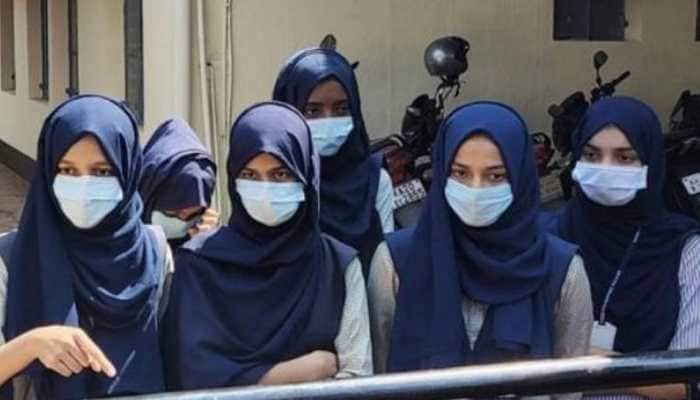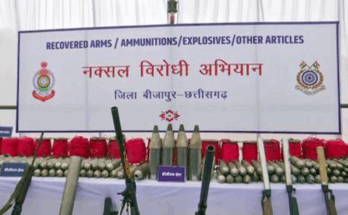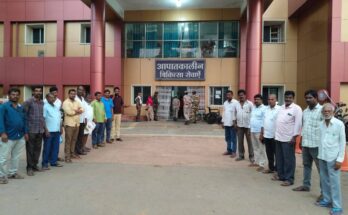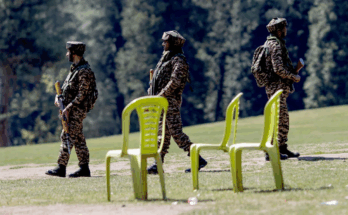PRESS RELEASE
Public Release of ‘Impact of Hijab Ban in Karnataka’s Educational Institutions: An Interim Study Report’ by People’s Union for Civil Liberties – Karnataka (PUCL – K)
In December, 2021, the Government PU College in Udupi, Karnataka prohibited six girls from attending classes after they came to the institution wearing the hijab. Similar restrictions began to be placed in other institutions in various districts and the issue soon escalated across college campuses in the state even as widespread violence followed. The Karnataka State Government issued an order on 05.02.2022 justifying restrictions on wearing head scarves in educational institutions arguing that it is not violative of the right to religious freedom under Article 25 of the Constitution. Shortly after, the Karnataka High Court on 10.02.2022 directed universities to be re-opened and restricted ‘all students regardless of their faith from wearing saffron shawls, scarfs, hijab, religious flags or the like within the classroom, until further orders.’ On 15th March, 2022, the Karnataka High Court upheld the restriction on hijab in educational institutions in Resham vs State of Karnataka.
Executive Summary
Given how the issue brought the society to a stand-still in the state, the PUCL Karnataka decided to undertake a study to understand more fully the impact of the High Court judgment in Resham v State of Karnataka at the grassroot level. The team visited Hassan town, a village in rural Hassan district, Mangalore city, Ullal, Hoode, Udupi town, and Raichur town and met women students who revealed to us their experiences and concerns. The team also met with members of the local college administration, officials of relevant government departments, the local police and members of Muslim civil society groups. Care was taken to visit different parts of the state and meet with students of both rural and urban localities. The identity of the people the team had spoken to was kept anonymous in this report to protect their privacy and ensure their security. The report critically analyses the role of the media to the hijab issue as also the response of the bureaucracy to the crisis. It also looks at the impact of the Karnataka High Court order from an educational, social and psychological perspective.
During our visits, the students shared with us the fact that the High Court order came as a rude interruption to their education as for many of them education is a step towards social mobility, employment and empowerment. However, colleges are now refusing to permit them to attend examinations and also to issue them their certificates. Further, ever since the issue around the hijab began, Muslim students and Muslim women student in particular are experiencing social segregation and have endured loss of contact and friendships with fellow students from other communities. This has engendered a deep sense of isolation and depression.
Our interactions with the students indicated that state inaction coupled with the Karnataka High Court order has comprehensively violated Muslim women students’ Right to Education without Discrimination, Right to Equality, Right to Dignity, Right to Privacy, Right to Expression, Right to Non-Discrimination and Freedom from Arbitrary State Action. Education, in particular, is not just a fundamental right but also an obligation of the state under the Directive Principles of State
Policy. Under Article 41, the state shall within the limit of its economic capacity and development, make effective provision for securing the right to education among other rights.
The dreams and aspirations of Muslim women remain shattered as they have been confronted with the artificial binary of having to choose between the right to education and the right to wear the hijab, if they so choose to. Government surveys have repeatedly demonstrated how the percentage of Muslim women attending school and college has seen a steady uptick over the years̤1 Nonetheless, experts have warned that the current restrictions on the hijab will likely harm the cause of Muslim women’s education and that it will lead to undoing the little progress that has been made post the Sachar Committee report2.
Some of the recommendations in the report include:
1. The Government Notification dated 05.02.2022 be immediately rescinded.
2. The court must issue a directive to the government to conduct a comprehensive inquiry into lost years and expenses incurred as a result of this order and ensure that compensation to the women and their families is paid.
3. The government must allow the students to enter the classrooms immediately, and in consultation with students, arrange special classes for them.
4. The State Human Rights Commission and Minority Commission should register suo-moto complaints against the principals and CDCs of colleges for violating the fundamental rights of the concerned students and initiate actions at the earliest.
5. The court must issue a directive to hold CDCs accountable, by both:
a. Making the CDCs truly representative, to be accountable to all of the different stakeholders, including members of all communities, students, non-teaching staff, teaching staff, members of civil society, and women.
b. Conducting an inquiry into cases where the CDC had overstepped its mandate and not provided appropriate forms of redress, in writing, to students and parents who have raised concerns and initiate actions against them
6. The Karnataka government must take adequate measures to strengthen a secular and non-discriminatory learning environment within colleges, allowing the students to express their faith and identity fully and ensuring that such shocking violations do not recur.
We request our friends in the media to kindly report on this issue widely and with vigour so that the voices of those gravely impacted by the actions of the State and the High Court order are brought out into public light. Complete report can be accessed on this link
Full Report
For more information, please contact:
Adv. Arvind Narrain – 9980010933,
Mr. Shashank SR – 9663888718,
Adv. Poorna Ravishankar – 9482851745




